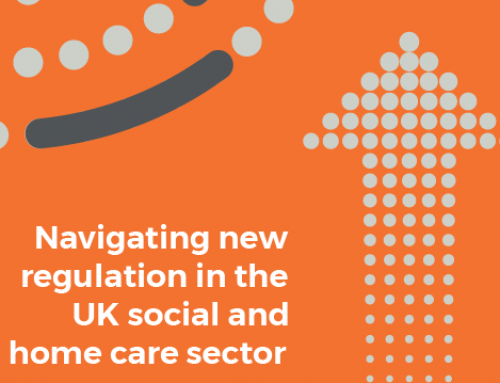The creating, testing, approval, and rollout of a vaccine to the masses done in under 12 months is something that has never before been done. Scientists have been working day and night to make this possible, and this week some UK residents will have been administered the first of the two vaccines.
So that’s it then. We have a vaccine, and in a couple of months, everything will be back to normal, right? Not quite.
If you thought that getting a tried and tested vaccine out in record time was impressive, we now have the not so simple task of getting 60 million people vaccinated. Twice. And then doing the same for the rest of the world.
Understanding the planning that needs to be done to ensure this whole process runs smoothly will give you a headache. Once it’s confirmed what order people will be vaccinated in, the right medical professionals need to be selected and scheduled to specific places to actually carry out the administration.
This is going to be one of the biggest global projects we have ever seen. So, for medical staffing agencies around the world, here are five key considerations before deploying staff to vaccination centres.
1. How do you get your medical professionals to where they need to be, when they need to be there?
This is the key question medical staffing agencies are asking themselves right now. Some may have experienced demand like this in the past, but others may not have, and it’s possible that current processes or technology in place are not equipped to deal with such a high volume of shifts that need to be filled over such a long period of time. The added pressure of it needing to be done so quickly can be quite daunting, too.
The Sirenum technology was born for situations like this. When you have the ability to bulk upload shifts and automatically assign the right worker to each shift (see how this is done in point #2), scheduling hundreds or even thousands of shifts takes seconds compared to hours or days.
It also means that replacement workers must be sourced and deployed at a moment’s notice. Say one of your workers test positive for COVID and has to isolate for two weeks (more on how this is managed in point #4), you need to make sure you can tap into your resource pool and find the right replacement ASAP to ensure the vaccine administration stays on track, and Sirenum helps you do this.
Back in April, we made a variation of our software freely available for use by charities needing to organise volunteers to provide services during lockdown. It was used by many charities around the globe to help care for their constituencies. In addition, we offered our core product to hospitals for free during the height of the pandemic’s first wave. Guy’s and St Thomas’ NHS Foundation Trust used Sirenum to ensure 100% shift coverage, that replacements had the appropriate skills and certifications, and to manage workforce fatigue. And we can deliver the same results in this scenario.
2. How do you know which of your staff should be administering vaccines?
When you receive a list of shifts that need to be fulfilled, and you have an entire database of potential workers to fill these shifts, how do you select the ones who are most appropriate?
It’s likely these workers will need to have a specific set of skills, qualification, experience, or all three. When you already have access to this information, scheduling the right person for the job is simple, and will reduce the amount of time you spend assigning workers to shifts dramatically. So be sure to have a full understanding of what kind of medical professional is required to help in this effort. And a full understanding of what skills and certifications your staff has.
With Sirenum, you can use the matching engine to rate each worker based on the requirements needed for each shift. And it doesn’t just work for matching relevant skills and experience, it also takes into account how far away each worker lives from a vaccination centre, meaning you can make decisions based on logistical factors too.
3. What about health and safety regulations – how do you manage that?
Vaccination centres may well be open 14+ hours a day in order to keep to their tight timelines. If this is the case, then it’s important that the workers are being looked after from a health and safety perspective. It’s vital that precautions are put into place to ensure workers get the rest, breaks, and time off they need throughout this process.
Traditional shift management might say, ‘this worker has been scheduled to work 40 hours this week which is the maximum they are able to do, and that’s fine because we have only scheduled them for 40 hours.’ But what if they are doing overtime? What if by the middle of day 4 out of 5 they have already reached their 40 hours, and they are now at risk of making a mistake because they are fatigued?
Sirenum takes health and safety very seriously, so makes it nearly impossible to flout any regulations. We have never had to roll out a global programme like this before, so let’s say vaccinating 100 people takes one hour longer than expected, and you have 500 people to vaccinate in a day, that is a lot of overtime.
Sirenum acknowledges this (see how in point #4) and will alert you to any risk your workers may be exposed to. If your worker is finishing each shift two hours after they were meant to, you will be alerted to the fact that the worker needs more time to rest in between shifts, and that someone else needs to be scheduled in to fill that shift requirement.
4. How will your workforce know where they need to be and when?
It’s all very well that you can schedule your workers effectively, but how do you communicate all of this information, which may change at any point, to your workforce? It’s absolutely vital that you have a clear communication channel to your workers so they know when they are working and have all the information about the shift location they need.
With something so time-sensitive and important, do you want to rely on text messages that might not be read, or emails which could find their way into junk folders? Absolutely not.
Sirenum has a mobile platform which allows all workers to be in the know 24/7. Scheduled them in for a shift first thing in the morning? A notification will pop up on their phone well in advance. Want to understand the true number of hours people are working? They can clock in, clock out, and document breaks directly throughout the app. Your worker needs to let you know they have tested positive for COVID? They manage their availability in the app so you can schedule a replacement. Not only does this mean you have better worker engagement, but it also means you have the right data to ensure they are paid the right amount for their work.
5. Do you have the right technology in place to be able to do all of this?
The right technology has the ability to ensure this marathon project runs smoothly. Without this, there is so much room for error that it could lead to significant delays or problems with the rollout of this vaccine.
Sirenum has already helped medical staffing companies get ready for this gargantuan mission, and we have been able to do so by implementing our technology quickly and efficiently. For one of our clients, turnaround time from initial conversation to go live was just 15 days, and we worked around the clock to do 24 days of work in the space of just nine days.
So the big question here is, are you ready to assist in the biggest medical rollout the world has ever seen? If not, we can get you there. We’re built on Salesforce which means its configuration allows adaptation to new situations very quickly in times of need, and these are those times.
We are so proud to be at the forefront of this effort and deliver support in our area of expertise, so if you need help getting ready for the vaccine roll-out, please get in touch today, or join our webinar on Tuesday to learn more.






Leave A Comment